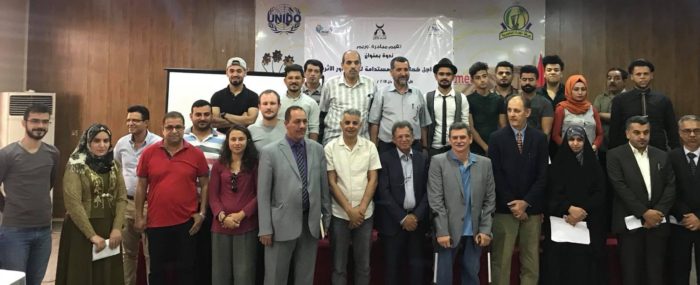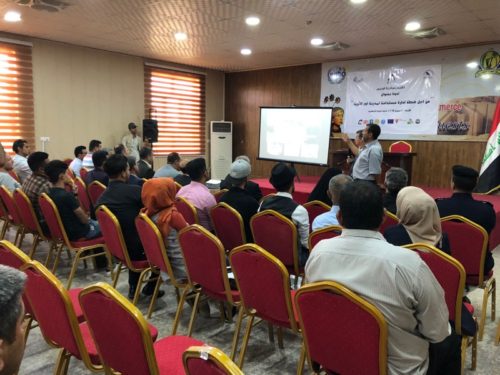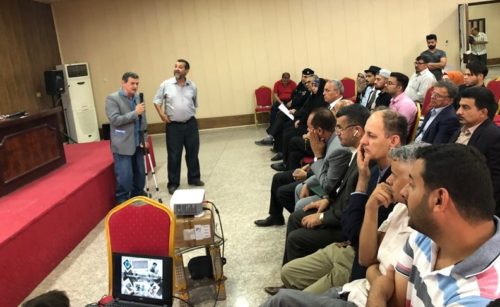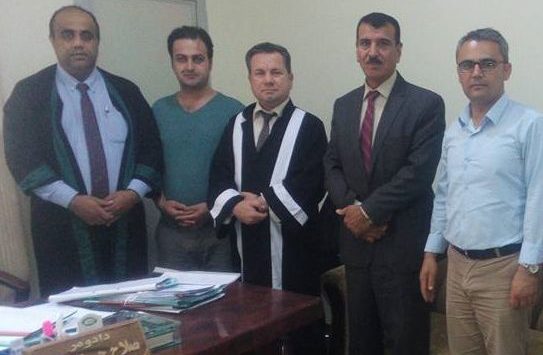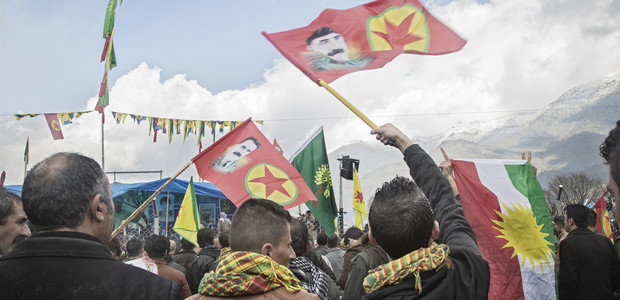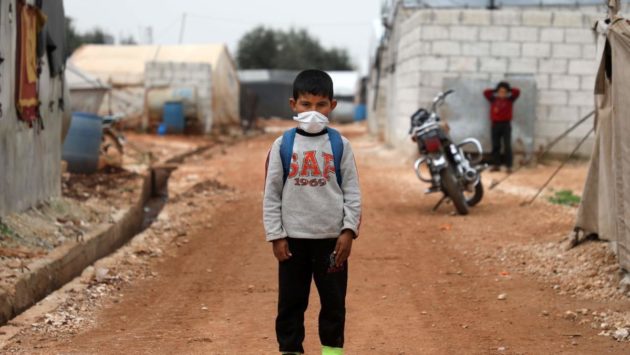Urim: A Civil Initiative to Protect the Ancient City of Ur
Each year, hundreds of people visit the city of Ur, which lies to the west of Nasiriya City. After it was listed as a UNESCO World Heritage site, officials in charge of the ancient city were provided an opportunity to implement a plan to run and protect it. Iraqi civil society actors believe that the success of any plan to run and protect the archaeological site can be complete and successful only given the participation of two key actors: local communities and civil society. These two groups complement each other, and with further coordination and cooperation with executive authorities and relevant ministries, their joint efforts can ensure a proper and sustainable city administration, one which is able to preserve the city’s rich heritage and protect it from harm.
“A Sustainable Preservation Plan for the Ur Archaeological Site” is the title of the seminar organized by the Urim Initiative in the Chamber of Commerce Hall in Nasiriya City on 20 July. Several local officials from Dhi Qar City attended the seminar, as well as many others interested in Iraqi archaeology and heritage. The discussions centered around determining the most effective ways to protect the immense cultural heritage within the city of Ur.
The seminar opened with a warm welcome to attendees and an introductory speech on the Ur initiative. This was followed by the archaeologist and professor, Abd Al Amir Al Hamdani, who spoke about the national effort which went into making the ancient city of Ur formally recognized as a World Heritage site. This achievement enabled it to be sustained and cared for, and can be used to protect it from the dangers the city now faces.
Dr. Ismael Dawood, of the Iraqi Civil Society Solidarity Initiative, presented a proposal for protecting the archeological site of Ur. It was designed by the office of the Italian architect, Carlo Leopardy, in collaboration with the University of Laspiansa in Italy. Dawood explained that this plan would be sent to Iraq’s Ministry of Culture for review and, hopefully, for implementation. The aim is for the ministry to take full advantage of the great possibilities and opportunities laid out in the plan.
Professor Franco de Agostino, an Italian archaeologist, provided an extensive presentation on Italy’s role in this initiative. This was followed by comments from the Chairman of the Committee of Tourism and Antiquities within the Dhi Qar Provincial Council, Ajyal Karim. She praised this type of initiative and activity and others related to archaeological preservation, and announced the readiness of her committee to provide full support and cooperation to ensure the success and achievement of the goals of the initiative. The director of the archaeological site of Ur, Ali Kadhim, shared her views, and announced the readiness of the Antiquities Directorate in Dhi Qar and the management of the site of Ur to provide full support and cooperation to help achieve the goals of the Urim Initiative.
One of the most important presentations came from the President of the University of Dhi Qar, Dr. Riad Shenta Jabr, who emphasized the full cooperation between the Faculty of Archeology at the University and the Urim Initiative. This was followed by a discussion about the vital role of the central Iraqi government in supporting, assisting and facilitating the procedures that would contribute to the protection of archeological sites and ancient cities. Speakers also cited the need for allocating financial support within the federal budget to sustain and protect the archaeological site of Ur as well as the marshes of Iraq.
The Urim seminar is part of a set of events to be held alongside the UNESCO meeting, which will take place in Manama, Bahrain at the end of this month. For example, Mashufna Cultural Center organized a trip to the ancient city of Ur, and to the city of Chabaish, where the Marsh Festival was held. The festival emphasized the need to keep the Iraqi marshes on the World Heritage List, and pressed the Iraqi government to implement UNESCO requirements for the site, and to protect the marshes from drought through the development of an appropriate water management plan under the slogan: “Let’s Keep it Global.”
The Urim Initiative is an effort launched by local and international organizations aimed at: assisting the local government to develop a sustainable conservation plan for the archaeological site of Ur, highlighting UNESCO’s requirements that must be met in order to keep the city of Ur on the World Heritage List, and emphasizing the great cultural heritage of Ur.

